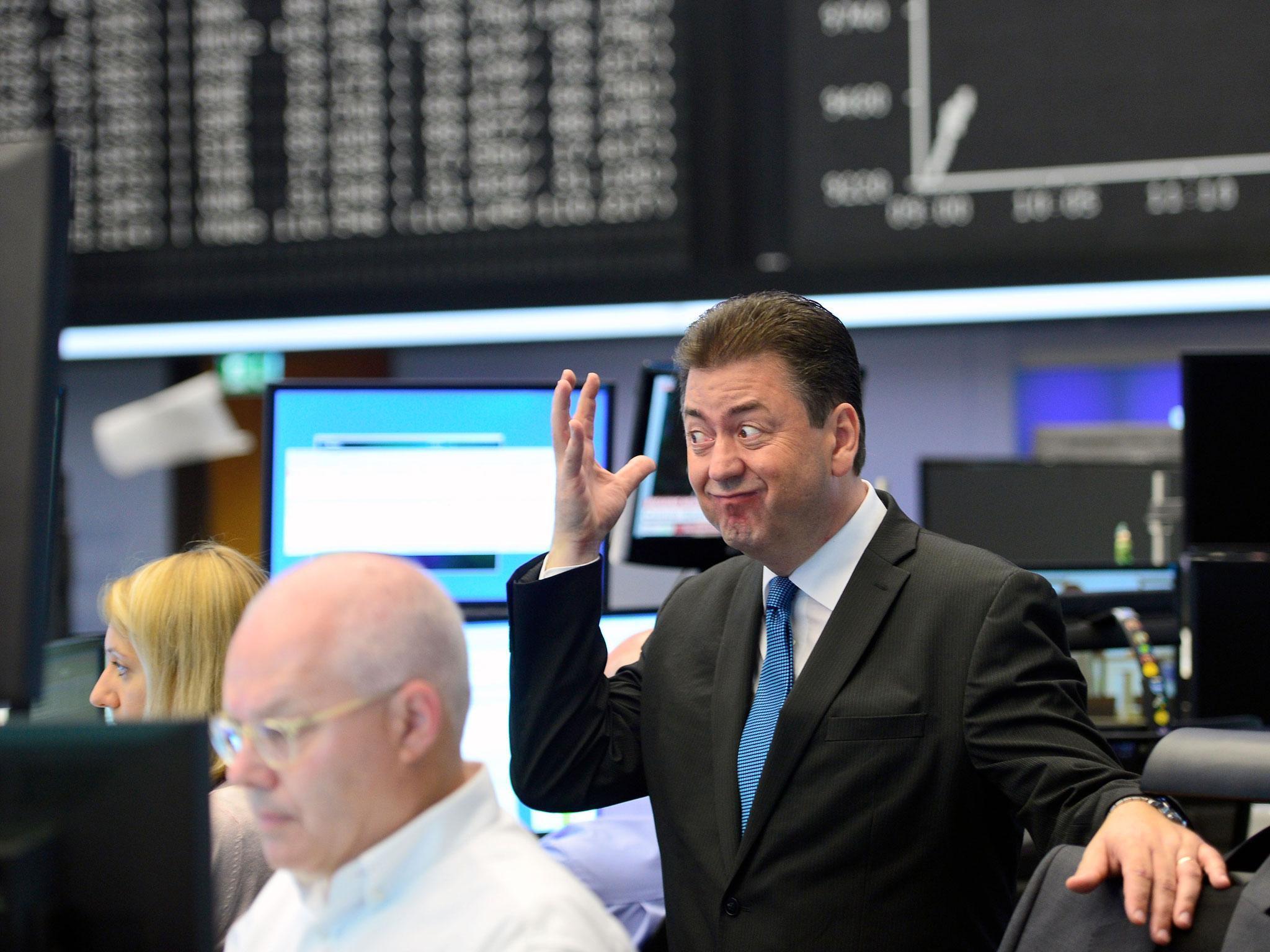Dow Jones plunges: US markets tumble as American investors weigh up Brexit
The monumental political decision has had a profound impact on capital markets

Your support helps us to tell the story
From reproductive rights to climate change to Big Tech, The Independent is on the ground when the story is developing. Whether it's investigating the financials of Elon Musk's pro-Trump PAC or producing our latest documentary, 'The A Word', which shines a light on the American women fighting for reproductive rights, we know how important it is to parse out the facts from the messaging.
At such a critical moment in US history, we need reporters on the ground. Your donation allows us to keep sending journalists to speak to both sides of the story.
The Independent is trusted by Americans across the entire political spectrum. And unlike many other quality news outlets, we choose not to lock Americans out of our reporting and analysis with paywalls. We believe quality journalism should be available to everyone, paid for by those who can afford it.
Your support makes all the difference.The US market has fallen to new lows following the UK’s decision to leave the European Union.
The S&P 500 fell 3.6 per cent on the back of the shock decision on Friday - the worst drop in ten months - and resumed its sell-off this week.
The Dow Jones Industrial Average index dropped 225 points, with all 30 of its constituents in the red, while the S&P 500 sank 1.3 per cent to a three-month low on Monday.
Investors in the US dumped risker assets like stocks, resulting in the major indexes decline, and rushed to safe havens like gold and government bonds.
European equities were also hit with the Stoxx Europe 600 Index down 3.1 per cent to its lowest level since February.
Investors are now watching to see what central banks will do in order to ease the volatility and inject more liquidity into the markets via quantitative easing.
Traders now expect interest rates in the US not to be hiked by the Federal Reserve until 2017. Chairwoman Janet Yellen told lawmakers last week that chances of a recession in the US were "low", before Brexit had been voted on.
Britain’s secession will trigger as much as $300 billion of selling by automated quantitative investment programs in the US, according to Marko Kolanovic, the JPMorgan Chase & Co derivatives strategist, as reported by Bloomberg.
Bank of England governor Mark Carney and UK chancellor of the exchequer George Osborne both tried to reassure the markets by saying plans were in place to help the economy.
The decision last week for the UK to secede from the EU drove down the euro and the pound.
German chancellor Angela Merkel will host a meeting with EU president Donald Tusk and also with French president Francois Hollande and Italian prime minister Matteo Renzi.
The European Central Bank is kicking off its three-day forum on central banking on Monday, and the conversation is likely to be swamped by Brexit.
Join our commenting forum
Join thought-provoking conversations, follow other Independent readers and see their replies
Comments